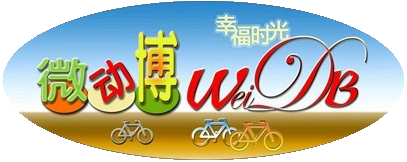Highly recommend a few children's books to read with your child
黄敏 06/09 87474.5/2
以下是我于2012年在PCE 分享的:
How do you instill your values to your child?
Here is my two cents:
I would think the most important is -- if we want to raise our children to become a good human being, we ourselves have to have strong desire to become a better person every day, being a good role model for our children.
Teaching moments are everywhere, it is up to us whether or not we seize the opportunity and convey our values and message to our children.
I also think that reading books to our children is a great way to teaching good values and habits to our children.
我对我儿子的教育的两大主要任务是:教孩子做人,教孩子学会生活。即教孩子做人做事的道理。
1. "E Is for Ethics: How to Talk to Kids About Morals, Values, and What Matters Most" by Ian James Corlett
Customer review from amazon.com
"This slim (just over 100 page) book contains 26 stories on a variety of moral issues, including honesty, tact, loyalty, integrity and responsibility. Each story runs less than 2 pages, and presents the main character in a situation where s/he is in a moral quandary -- followed by a "what should the main character do now?" Then there are three or four follow-up questions, and two relevant quotations. It also includes one colorful, cartoonish illustration per story, which are appealing to the young reader. "
I bring this book with me and read it to my son even on traveling, I even took it to China this summer.
One day, my son said some negative thing about a scene he saw in China, that night I read a story in this book about how a boy respects the culture of a friend who came from Japan, then discuss about the culture difference between China and America.
2. "Have You Filled a Bucket Today: A Guide to Daily Happiness for Kids"
"Fill a Bucket: A Guide to Daily Happiness for the Young Child " by Carol McCloud and Kathy Martin
Product Description
"Through simple prose and vivid illustrations, this heartwarming book encourages positive behavior as children see how rewarding it is to express daily kindness, appreciation, and love. Bucket filling and dipping are effective metaphors for understanding the effects of our actions and words on the well being of others and ourselves."
All too often in today's world, we push and demand our children to compete all the way to be the No. 1 in every their endeavor (like Tiger mom), but does that help our children to lead a happy life? nobody can stay No. 1 on everything all the times, can your child handle when he/her is not No. 1? what would your child do at the situation where a classmate need your child's help on the homework but it might take away from your child's time to prepare the test which might result your child lose his No. 1 spot in the test? which one would he choose - helping classmate or vice versa? have we taken the time to think what really make a person to lead a happy life?
The message from "Filled a Bucket" metaphors is very easy for children to understand that – not only being kind, loving, considerate , helping others, corporation makes other people happy, but also is the source of their own happiness.
3. “Winners Never Quit!” by Mia Hamm, Star of the U.S. National Soccer Team, Olympic gold medalist, World Cup champion and five-time U.S. Soccer Player of the Year
I read this book to my son when he was 4 years old. This is a great book to teach perseverance and doing your personal best.
4. “The 7 Habits of Happy KIDS” by Sean Covey
If you are big fan of Stephen Covey’s “The 7 Habits of Highly Effective People”, you got to buy this book for your child.
This great book introduces the 7 habits to kids with 7 interesting stories-- a way that is very easy for kids to understand the concepts.
HABIT 1 – Be Proactive – You’re in Charge
HABIT 2 – Begin with the End in Mind – Have a Plan
HABIT 3 -- Put First Things First – Work First, Then Play
HABIT 4 – Think Win-Win – Everyone Can Win
HABIT 5 – Seek First to Understand, Then to be Understood – Listen Before You Talk
HABIT 6 – Synergize – Together Is Better
HABIT 7 – Sharpen the Saw – Balance Feels Best
The story for HABIT 7 was this:
One Monday, Ms. Hoot told class that “ These 5 words will be on Friday’s spelling test, be sure you study every night.”
On Monday, Pokey went out with his friend to play drum;
On Tuesday, off he went to his friend’s home to taste the fresh-baked chocolate-chips cookies;
On Wednesday, he went on a butterfly hunt with his friend;
On Thursday afternoon, he took a bicycle ride with his friend. When he got home and remembered that spelling test was next day and he hadn’t studied even one word. There were too many words to learn in just one night. He finally gave up and went to sleep.
The next day, Pokey failed the test.
Sophie told him that “You should have put first thing first, done your homework first, then had fun later.”
Ms. Hoot told Pokey he could take the test again next Friday.
Pokey studied a little bit each day. On Friday, he got a perfect score.
My son loves this story. One day he came home from school, took the folder from the backpack, said to himself “First Thing First.” I was standing at the kitchen and was pleasant surprised to hear that. Isn’t this a amazing!
Children learn much better from the stories than our old facts, as they have something they can relate to.
5. “Who Was” books series
“Who Was” books series is about the lives of world’s greatest peoples who had changed the way we live. These illustrated biographies provide a lot of great information about fascinating figures in history (and current figures too!) while still providing entertainment through the short chapters and illustrations. They are great books for young readers, they are also wonderful for parents read with their children together.
From all the “Who Was” series books I have read, I have come to a conclusion that the motivation for children to learn is coming from their strong curiosity and interest. We should cultivate their curiosity and interest with health soil. As Asian parents, sometime we put too much emphasis on the test score, so we push and demand them to get all A’s, and lose the sight of what is the real purpose of learning.
The reason I really like to read “Who Was” series books together with my son is that, from the books, firstly we can learn history, geography, and science together. So that when my son starts to learn these subjects at the school, he would be more interested at these subjects and facts—history is no longer just memorizing event timeline table, geography is no longer just how many continents and how many countries, there are interesting events and fascinating people behind it. A lot of children lost interest of studying because they are under the perception (more from their parents) that studying = doing homework and get all A’s, no wonder our children feel study are too boring. Through reading these books, I want my son to understand that learning is not limited to doing the homework and getting the good test results, the real meaning of learning is to gain the knowledge and wisdom that would enrich our lives and make our lives more enjoyable and help us to develop our full potential so that we can use our talents to help others. To my view, intellectual curiosity and love of learning is one of the essential elements to have a happy and fulfill life.
Secondly, we try to instill our good values to our children, but too often our kids feel we are lecturing them, so I thought children would learn the best from real people’s story. Children’s maturity is developed through their experience and thinking, when children encountered the obstacles in their lives, they could unconsciously relate their situations to the stories they have been reading and gain the courage and willpower to overcome obstacles. At beginning, very few kids would voluntarily like to read these type of books(励志书)so I would read with my son when he is young and would still like me to read with him, once it becomes the habit and he finds it interesting, he will start to read by himself.
Below are some examples about “Who Was” series books
Who Was Amelia Earhart?
Who Is Neil Armstrong?
Who Was Walt Disney?
Who Was Steve Jobs?
Who Was Anne Frank?
Who Was Helen Keller?
Who Was Thomas Alva Edison?
Who Was Leonardo da Vinci?
Who Was Ben Franklin?
Who Was Marco Polo?
Who Was Harry Houdini?
Who Was Franklin Roosevelt?
Who Was Rosa Parks?
and many more, below is the link
Here is the complete email I posted on the PCE forum about “Who Was” book series



